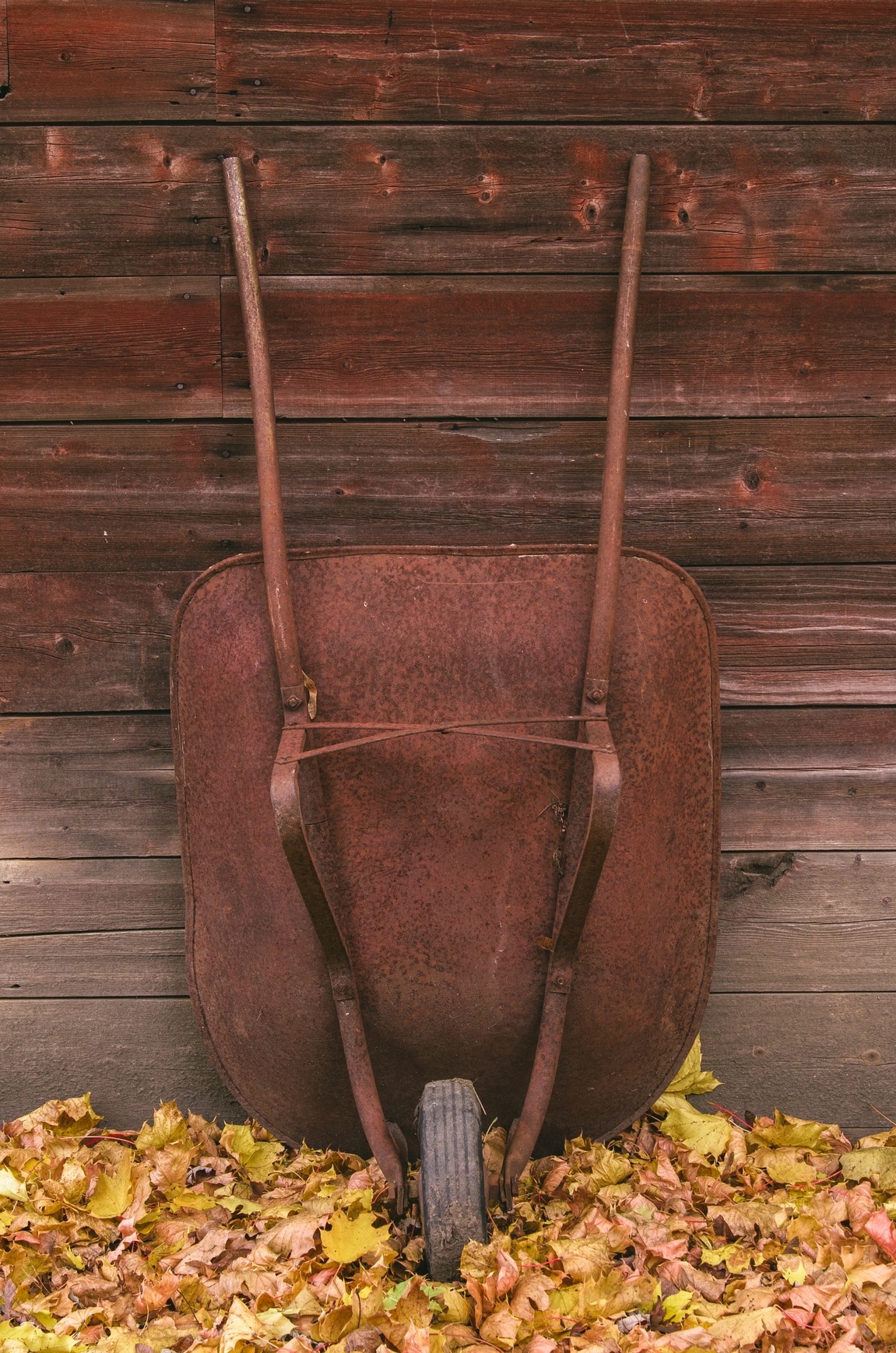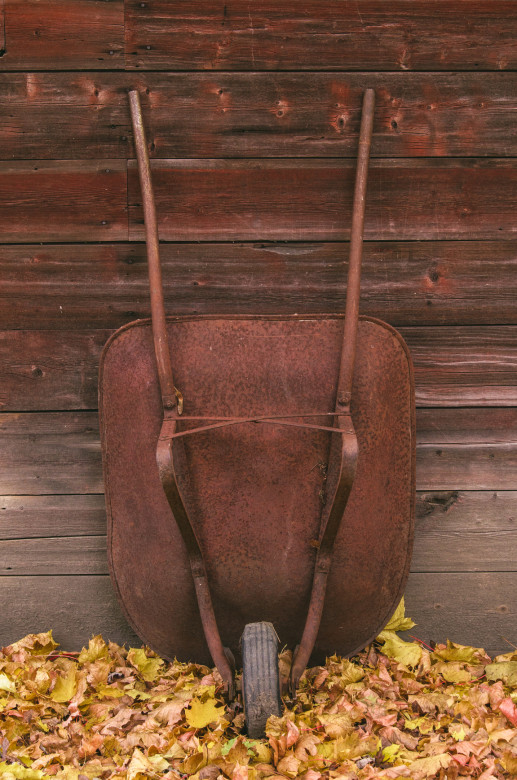
Attics to Attics, Barn to Barn
Photo Credit : stocksy.com
Photo Credit : stocksy.com
A year later, eager to wrap my hands around more tools, I enrolled in a program that teaches trade skills to women. By Christmas, I’d experienced the expediency (and the shriek and blare) of the chop saw and circular saw. I’d brandished a pneumatic nail gun, (with its attendant mechanical sneeze). And to my dossier of built objects I’d added: a coat rack, nest boxes, and a plant stand.
But while my respect for the power and skill of power wrenches and skill saws is serious and deep, what I most revere are the tools I can grip in my fist and drive with my arm. I’m hooked on my handsaw with its rack of prickly teeth, the way it wheezes sweetly through a two by four; and I’m kinda wild about my trowel which is perfect for chipping through old chicken poop; and gosh I love my trusty plumb bob and spirit level which never fail to inform me how egregiously off-kilter my structures are; and then thanks be to the hickory shafted hammer, which is nothing more than a lanky paperweight until my muscle and tendon heft it to help bury the nail. Heck yeah, I’ll admit those Shop-Vacs, brushcutters, and leaf blowers sure are convenient, but I’d rather clutch a broom, swing a scythe or make like a gondolier with my rake, paddling through fallen leaves any day of the week, until late autumn, when the sky turns the murky hue of a well-used spade, and suddenly it becomes time to relinquish them all. Then my tools begin their migration to their winter roosts on the barn wall.

says Shipley.
Photo Credit : Julia Shipley
And there they the hang, a motley roster: the rock bar, the hoe, the potato fork, the pitchfork. Returning each tool to its hook, not just for the night, but for the season, brings on a twinge of separation anxiety. There’s no guarantee what kind of interval will elapse before it’s next grasped.
My friend, Mark Woodward, knows about the indeterminate pauses between a tool’s relinquishment and a tool’s retrieval. Equipped with a trailer, storage space, and a talent for salvage, Mark has confronted many a dark garage, cobwebby barn and freighted attic, liberating furniture, antiques and tools from years of disuse. The other day when I called him, he was on his way back from checking out items in a Vermont house belonging to a 91-year-old woman, now living full-time in Florida.
Real estate agents recommend him to the bereaved and others find him by word of mouth—people confronting a life’s worth of household and farm supplies invite him to drop by to take a peek, see if there’s anything worthwhile.
Mark owns a carriage barn in Johnson, Vermont, that can store 20 trailers worth of stuff, a hoard he may acquire a little at a time and sequester sparingly, or fill up rapidly with huge hauls over the course of a couple years. Then, whenever there’s no more room, he mounts an extravaganza infamously known as Mark’s Yard Sale. Over the past 20 years he’s held six such occasions where, for two weekends in a row, a burgeoning homesteader might find everything she needs to furnish a new life. Most of what I use to raise animals and grow food I have plucked off Mark’s tables of recovered and rescued wares: from my stepladder and sawhorses to my dustpan and broom; from my wooden stanchion and rubber bucket to the hay rack and axe; all my dinner plates, the tin snips, a bunch of fence insulators, a cat’s paw—all scored from this old-school sort of Home Depot. Thus what had stopped and stilled and hung upon a stable nail or leaned in a closet or cupboard or was forgotten in someone’s barn stall—all of this practical handy stuff—has more years to be used, another life.
Between the former owner who gripped it last, and I who grasp it now, we almost shake hands across a century of digging down, cutting apart, leveling out, carrying on, getting things done, until the snows come.
Julia Shipley
Contributing editor Julia Shipley’s stories celebrate New Englanders’ enduring connection to place. Her long-form lyric essay, “Adam’s Mark,” was selected as one of the Boston Globes Best New England Books of 2014.
More by Julia Shipley

